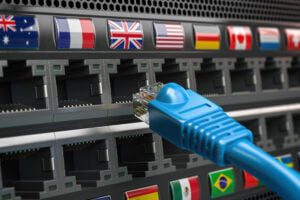The term BYO usually means you've been invited to a boring party. In the case of BYOD, that party is on the rise and growing every day. Business.org looks at the pros and cons of bringing your own device.
BYOD BYOD (bring your own device) refers to the practice of employees using their personal devices - such as smartphones, laptops, PCs, tablets and other equipment - at work for the sake of convenience and comfort. This can save the company money (no upfront equipment costs) as well as cause headaches (IT and security issues), but the BYOD trend is fast becoming an office staple, on a par with scooters and ping-pong tables (your office may vary).
Variations in BYOD include BYOT (bring your own technology), BYOP (bring your own phone), BYOC (bring your own computer), BYOL (bring your own laptop), BYOA (bring your own applications) and the truly strange BYOPC (bring your own personal computer). We'll be using BYOD here because, again, it sounds like a party. The real issue for small businesses is shifting from We must allow BYOD? to How do we manage BYOD? It's already here and there are more than a few factors to familiarize yourself with.
Who is driving the implementation of BYOD?

'Millennials' - but you probably saw that one coming. They're entering the job market with years of built-in experience using their favorite 'smartphones', 'tablets' and laptops, and they're not willing to give them up.
Millennials are also more open to mixing their personal and business lives, as well as working weekends and unusual hours, which is another reason for having their own devices on hand. It's usually the CEOs who approve the company's BYOD, and they were doing it long before millennials, because, well, they're CEOs (ask any IT employee who's been told to "make this thing work").
- Lower costsemployees have already bought and paid for their own devices, so you won't have to spend money on providing them.
- Employee satisfactionIn the history of offices, has an employee ever been completely satisfied with the standard equipment provided by the company? Rarely - just ask a struggling IT worker.
- Increased productivityBYOD: emphasizing the "bring" to BYOD, an employee is more likely to work anywhere and at any time on their preferred device because it will be with them, not back in the office.
- Instant updatesThe latest software and hardware updates are not up to you, but to the owner of the device - and few are willing to ignore the latest updates and applications.





